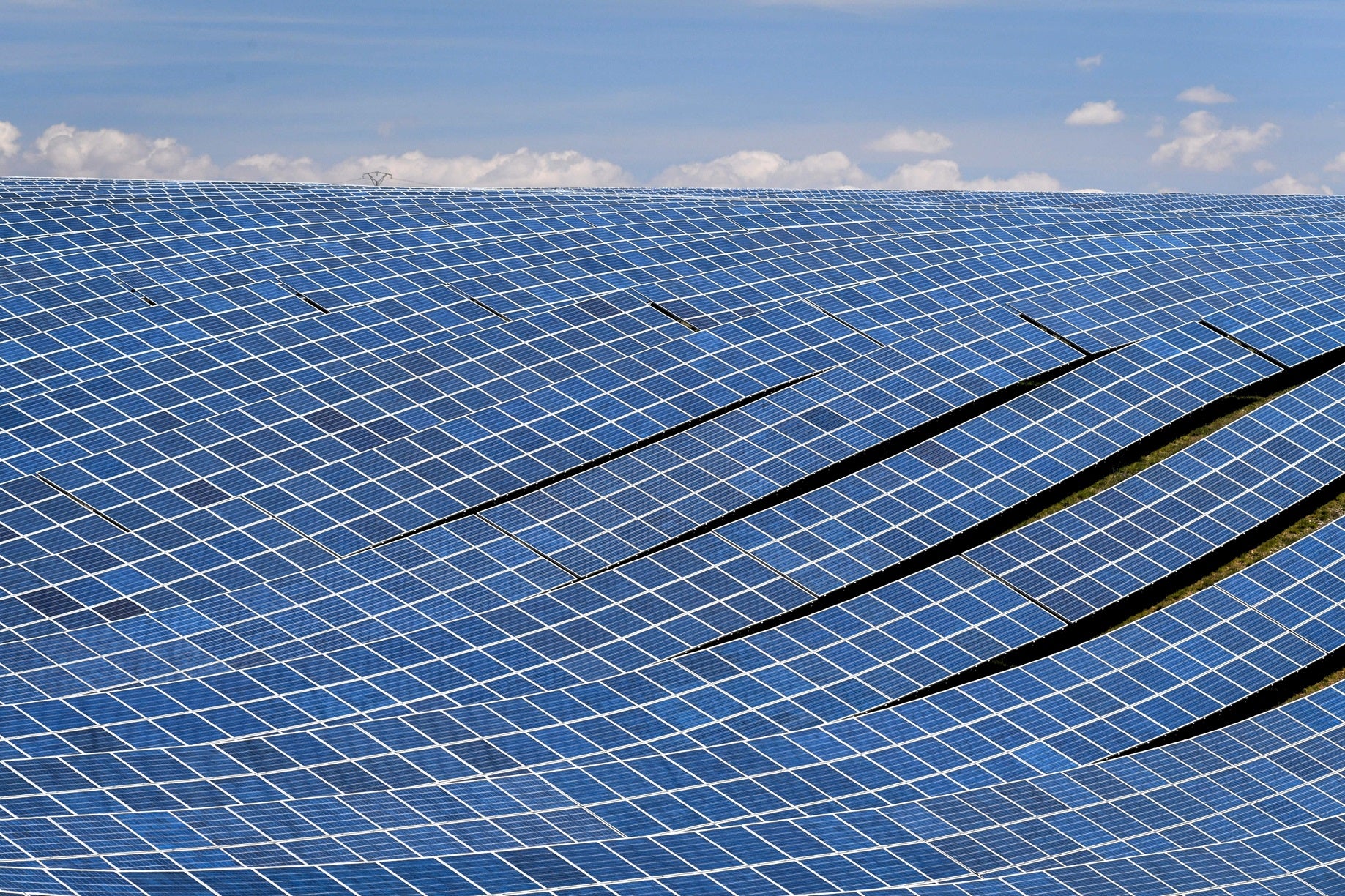Solar panel achieves world record with ‘miracle material’
New record for perovskite-silicon cell is more than 7 per cent more efficient than a standard silicon cell
Your support helps us to tell the story
From reproductive rights to climate change to Big Tech, The Independent is on the ground when the story is developing. Whether it's investigating the financials of Elon Musk's pro-Trump PAC or producing our latest documentary, 'The A Word', which shines a light on the American women fighting for reproductive rights, we know how important it is to parse out the facts from the messaging.
At such a critical moment in US history, we need reporters on the ground. Your donation allows us to keep sending journalists to speak to both sides of the story.
The Independent is trusted by Americans across the entire political spectrum. And unlike many other quality news outlets, we choose not to lock Americans out of our reporting and analysis with paywalls. We believe quality journalism should be available to everyone, paid for by those who can afford it.
Your support makes all the difference.A new efficiency world record for converting sunlight into electricity has been set, in what researchers claim is a huge boost for renewable energy.
Researchers at Longi, the world’s biggest solar panel manufacturer, achieved a 34.6 per cent power conversion efficiency using a tandem perovskite-silicon solar cell, beating the previous record by 0.7 per cent.
The new record is also more than 7 per cent more efficient than the record for a standard silicon solar cell, which is found in most commercial solar panels.

Perovskite has been hailed as a ‘miracle material’ for its potential to vastly improve everything from batteries to telecommunications and renewable energy.
With current silicon solar panels reaching their physical limits, researchers are now looking to next-generation tandem cells to better harness the Sun’s energy.
Perovskite-silicon cells have a theoretical efficiency limit of 43 per cent – far exceeding the 29 per cent limit of standard silicon cells.
The latest record follows a series of breakthroughs from China-based Longi, having broken the world record for solar cell efficiency 16 times over the past three years.
The record was announced at the 17th International Solar Photovoltaic and Smart Energy Conference (SNEC) in Shanghai, China, alongside a new “landmark” agreement to transform global energy by partnering with Saudi energy firm ACWA Power.
The company said in a statement that it achieved the new record by “optimising the thin film deposition process of the electron transport layer, developing and using high-efficiency defect passivation materials, and designing high-quality interfacial passivation structures.”
No further details were given, though Longi is one of several companies currently in the process of commercialising the technology.
In the UK, Oxford PV is hoping to fulfil the first customer orders of its perovskite-based solar cells this year, having established a production facility in Germany.

Join our commenting forum
Join thought-provoking conversations, follow other Independent readers and see their replies
Comments